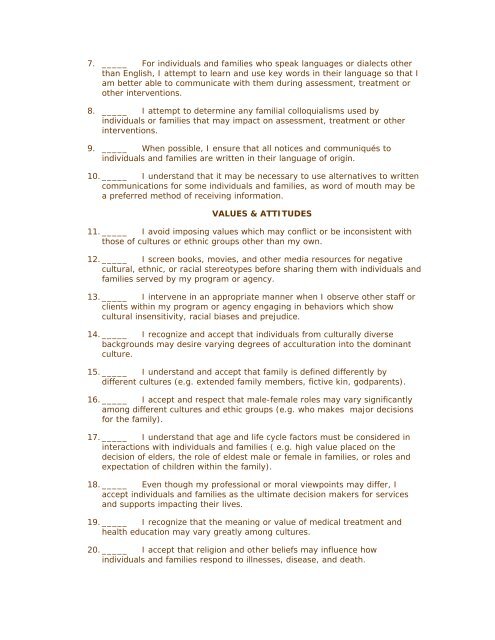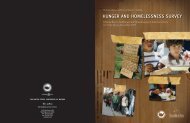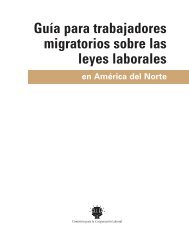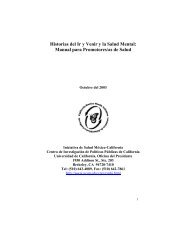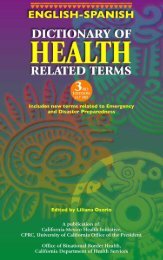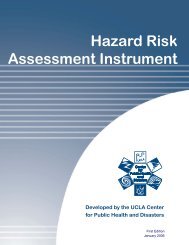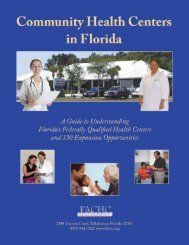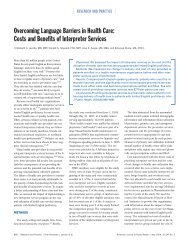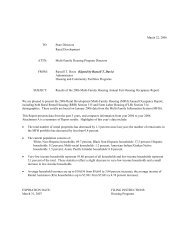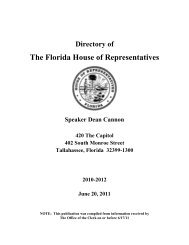Self-Assessment Checklist for Personnel Providing Primary Health ...
Self-Assessment Checklist for Personnel Providing Primary Health ...
Self-Assessment Checklist for Personnel Providing Primary Health ...
You also want an ePaper? Increase the reach of your titles
YUMPU automatically turns print PDFs into web optimized ePapers that Google loves.
7. _____ For individuals and families who speak languages or dialects other<br />
than English, I attempt to learn and use key words in their language so that I<br />
am better able to communicate with them during assessment, treatment or<br />
other interventions.<br />
8. _____ I attempt to determine any familial colloquialisms used by<br />
individuals or families that may impact on assessment, treatment or other<br />
interventions.<br />
9. _____ When possible, I ensure that all notices and communiqués to<br />
individuals and families are written in their language of origin.<br />
10. _____ I understand that it may be necessary to use alternatives to written<br />
communications <strong>for</strong> some individuals and families, as word of mouth may be<br />
a preferred method of receiving in<strong>for</strong>mation.<br />
VALUES & ATTITUDES<br />
11. _____ I avoid imposing values which may conflict or be inconsistent with<br />
those of cultures or ethnic groups other than my own.<br />
12. _____ I screen books, movies, and other media resources <strong>for</strong> negative<br />
cultural, ethnic, or racial stereotypes be<strong>for</strong>e sharing them with individuals and<br />
families served by my program or agency.<br />
13. _____ I intervene in an appropriate manner when I observe other staff or<br />
clients within my program or agency engaging in behaviors which show<br />
cultural insensitivity, racial biases and prejudice.<br />
14. _____ I recognize and accept that individuals from culturally diverse<br />
backgrounds may desire varying degrees of acculturation into the dominant<br />
culture.<br />
15. _____ I understand and accept that family is defined differently by<br />
different cultures (e.g. extended family members, fictive kin, godparents).<br />
16. _____ I accept and respect that male-female roles may vary significantly<br />
among different cultures and ethic groups (e.g. who makes major decisions<br />
<strong>for</strong> the family).<br />
17. _____ I understand that age and life cycle factors must be considered in<br />
interactions with individuals and families ( e.g. high value placed on the<br />
decision of elders, the role of eldest male or female in families, or roles and<br />
expectation of children within the family).<br />
18. _____ Even though my professional or moral viewpoints may differ, I<br />
accept individuals and families as the ultimate decision makers <strong>for</strong> services<br />
and supports impacting their lives.<br />
19. _____ I recognize that the meaning or value of medical treatment and<br />
health education may vary greatly among cultures.<br />
20. _____ I accept that religion and other beliefs may influence how<br />
individuals and families respond to illnesses, disease, and death.


